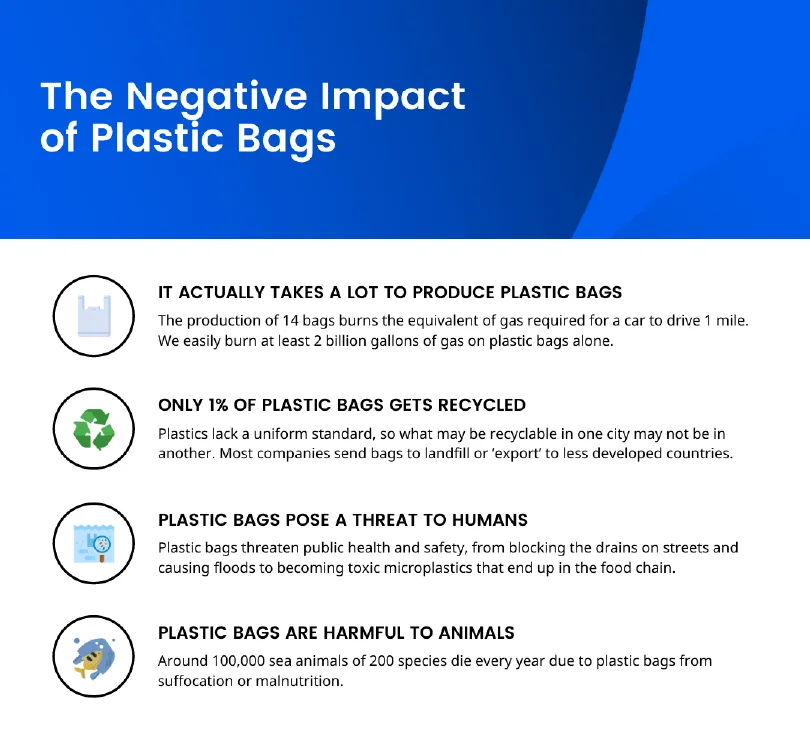How harmful are plastic bags to the environment?
July 16, 2021
We have all heard countless times from many sources that plastic bags are bad. At the risk of sounding redundant, we would like to summarize the harm of plastic bags once more to get the point across – let us refrain at all cost from using plastic bags.
It actually takes a lot to produce plastic bags
It’s easy to look at a flimsy plastic bag and think that it couldn’t have taken too much to produce (i.e. producing that one bag did not cause so much carbon emission and environmental damage), but production of only 14 bags burns the equivalent of gas required for a car to drive 1 mile. Here’s a figure if you prefer larger numbers: 430,000 gallons are required to produce 100 million bags and we use a lot more than that. Estimates vary, but worldwide production is between 500 billion and 1 trillion plastic bags every year. We easily burn at least 2 billion gallons of gas on plastic bags alone.
Even if you separate & dispose, only 1% of plastic bags gets recycled
The recycling rate for plastic bags is a dismal 1%. The low figure is due to not only the fact that many people just chuck them in trash but also the fact that most plastic bags that get separately disposed of don’t actually get recycled. Plastics in general direly lack a uniform standard in recycling. Even the recycling symbols/marks are different in each country and in the U.S., there is no federal law or regulation regarding how to use the symbol or recycle the products with it. What may be recyclable in one municipality may not be in another. Instead of worrying about the literal and figurative mess, most recycling companies send the collected plastics bags to landfill or ‘export’ to less developed countries, where even children work in conditions that raise many labor and human rights issues.
Plastic bags pose a threat to humans
Plastic bags flying about is not just an eyesore, but a real threat to public health and safety. Plastic bags blocking the drains on streets cause floods in cities. This led to Bangladesh being the first in the world to ban plastic bags countrywide. How about plastic bags that end up in landfills or oceans? They take centuries to break down and when they do, they do not decompose like natural products and instead ‘photodegrade’ into toxic microplastics. This builds up in the food chain as animals ingest them. We now have to worry about microplastics bioaccumulating as we do about mercury.
Plastic bags are harmful to animals
We see many pictures of birds entangled in or suffocating on plastic bags and the insides of dead whales and turtles filled with plastics. Around 100,000 sea animals of 200 species die every year due to plastic bags from suffocation or malnutrition (indigestible plastics take up stomach space) after ingesting them.


There could be better, more organized marks on products; there could be increased recycling capacity; but decreasing the use of plastics bags in the first place is the best solution. We urge everyone to minimize their use of plastic bags. Bring your own bags to stores. When you believe you are doing your best to minimize your use of plastic bags, take further steps: ask your local representative to introduce whatever measures, heavier taxes on or even banning plastic bags. These measures work.
Besides encouraging you to reduce your usage of plastic bags in order to protect the environment and your wellbeing, here at Haulla, we will also continually find ways to protect your wallet by helping you reduce the cost of getting rid of your garbage.
